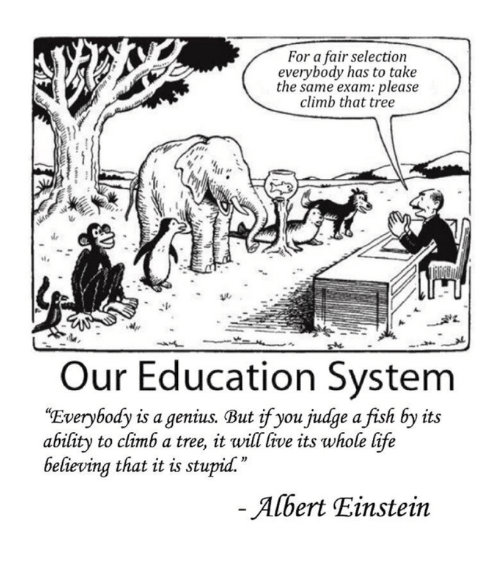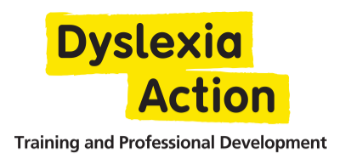Dyslexia and Me: How I Became a Learning Support Teacher
 Imogen Barber
Imogen Barber
Julietta Howell, a dyslexic individual herself, is an ALN (Additional Learning Needs) Specialist Practitioner at St John’s College in Cardiff, an independent school for pupils aged three to eighteen. For over nineteen years she’s helped many young people with literacy difficulties go on to achieve academic and personal success, and was recognised as Teaching Assistant of the Year in 2020, in the South Wales Argus Schools and Education Awards.
Below Julietta describes her personal journey with dyslexia, how she ended up doing a job she never thought would be accessible to her, and what it’s like returning to study with Dyslexia Action as an adult.
What made you want to become a learning support teacher?
I wanted to become a learning support teacher because I wanted to give children with literacy difficulties the best possible chance to succeed. As an adult, I only discovered I had dyslexia in my thirties. I grew up in a time when dyslexia wasn’t really recognised in school and it was never spoken about. It wasn’t until my daughter was diagnosed, that I found out I was also dyslexic. I’d always loved working with children and at the time was already in a teaching assistant role. Seeing the difference a diagnosis meant to my daughter and how the difference in extra time and support impacted her confidence and performance when sitting A-Levels encouraged me. So I went on to deepen my understanding of literacy difficulties and strengthen my skill set as much as possible to be in a position to help more children.
How did things go for you after you left school – what was your route into teaching?
I left school as quickly as I was allowed, the teachers were a bit shocked because they felt I was a bright student and should further my education. But trying to pass exams in a system that was measuring how quickly you can get things down on paper was incredibly off-putting and it drained me of my confidence and belief in my abilities. If you don’t go to university then you find different routes into employment – for me initially, that was banking. I started on a career path with Barclays but although I liked the interaction with people I quickly realised banking wasn’t for me. So I decided to go with my cousin to an interview to become an airline stewardess. Unfortunately, she didn’t get the job but I did! I found the training given to cabin crew to be much more accessible than anything I had previously experienced at school and enjoyed this learning experience and role. When my children came along I decided to leave (twenty-eight years ago there wasn’t anything like the part-time or flexible working options there are now offered to parents).
When my children were a bit older I felt ready to return to work. Having run nursery playgroups and parenting courses I knew I had a passion for working with children so I retrained as a teaching assistant and then did my TEFL qualification and taught children with EAL. The school noticed I had an aptitude for helping children with literacy and numeracy difficulties, although there was at the time a greater need for the former, so that’s what I focused on.
Do you think people with dyslexia are sometimes put off a career in education?
Twenty years ago, I didn’t feel like I had the confidence to go into teaching – and the barrier to passing exams just felt like too much. I lived with the belief that I wasn’t good enough because my spelling and processing were a little bit slower. Over the years I’ve spent dealing with children, I put strategies in place to get around this, as you do as a dyslexic learner – you find ways of coping.
These days there is so much more support and understanding – more ways to build the confidence of young people. We are recognising some of the diverse talents that people with dyslexia can bring to the table. I also think dyslexic thinkers can make great teachers because they have first-hand experience of what having difficulties is like and are used to finding strategies and making adaptations. Their dyslexia can make them more empathetic and knowledgeable as well as creative. These traits definitely help me with my teaching and with creating an inclusive and accessible learning environment.
Were you at all daunted by the prospect of returning to learning as an adult?
A little. The thought of going through a lot of academic papers and writing assessments made me nervous, but I knew I wanted to enhance the support I could provide in my school. After doing a lot of research, I selected the CPD courses offered by Dyslexia Action. I really liked the way the course was structured; everything was broken down into bite-sized pieces which prevented cognitive overload and it was all very well thought out with made it accessible. They weren’t asking for a teaching qualification or a degree which also made things easier and there were various exit strategies available where I could still gain an award if I needed to pause the course earlier than planned. There was a good mix of learning; videos, presentations, academic reading materials, and practical tasks that I could go through at my own pace which supported my working memory and this enhanced the learning experience.
The tutor support has also been positive and inspiring – as has the contact with other delegates. There are lots of people from all types of teaching professions coming together to share ideas in the online environment – and just recently someone else on my course also shared that they are dyslexic. My positive experience with Dyslexia Action has given me renewed confidence as an adult learner. When I first started this course my goal was to gain my Level 5 qualification, but actually now I feel like I can go on to gain the Level 7 award, something I would not have thought would have been accessible to me before.
Julietta is studying with us on our Dyslexia, literacy and numeracy short CPD course. You can watch her full review below.
What’s the most important insight you’ve gained from doing further study with Dyslexia Action?
I’ve learned so much more about the co-occurring difficulties that come with dyslexia and the latest research that is enhancing our understanding of how all learners can fulfil their potential. Since lockdown, I’ve noticed that many more learners are coming through who need help with reading and spelling and I wanted to figure out the best ways to help.
Some of these children don’t meet the criteria for specialist support, so my goal is to export some of the multisensory teaching practices I already know, as well as the latest research about how to approach learning, to my colleagues in the classroom. The course has given me the confidence to do this and hopefully collaboratively level the playing field for all our children. Dyslexic teaching is, of course, great for dyslexic learners, but fundamentally it’s good teaching practice for all.
I haven’t finished all my CPD courses yet, but I’m pretty excited to be learning more about explicit and systematic evidence-based teaching practices, the Orton-Gillingham approach, the science behind memory and how we learn and the best ways of supporting all neurodiverse learners, all of which was a big draw to the Dyslexia Action CPD courses and what they offer. I aim to become a qualified dyslexia assessor, meaning my school won’t have to outsource this anymore.
My ultimate goal is to get children the support they need to be able to show more of what they can do, rather than what they can’t.
What advice would you give to a young person with dyslexia?
In my school, I’m lucky enough to support children over quite a long period of time, often from five years old until usually about twelve/thirteen. When they leave us, they are usually absolutely flying, they have received the extra time for their exams (because we recognised they needed to be tested) and they go on to do A-levels and, if they want, to university. I am always so proud of the students I work with because I know the work they have put in to achieve their successes.
I realise not everyone has access to such continuous support. If you are somebody who is struggling – my advice would be to find your strengths, use these strengths to help you with any difficulties, and stick with it. It will be tough at times, but it’s worth it because once you have achieved what you need to at school or in the workplace, no one can take this away from you. It’s the same advice I gave my children. Also, do not be afraid to ask for help. The adjustments that can be made will make a huge difference and are designed to level the playing field so everyone has the same opportunity to show their best.
I always return to an often-referenced quote that Richard Branson has on his website that helped me put my dyslexia in context:
“Everybody is a genius. But if you judge a fish by its ability to climb a tree, it will live its whole life believing that it is stupid”
For many years I carried the belief that I wasn’t as good as other people and it prevented me from doing things. I’m glad to say I don’t have that belief now and I’m doing a career I love – it’s liberating. There’s no reason any young person with dyslexia growing up today shouldn’t be able to say the same.




